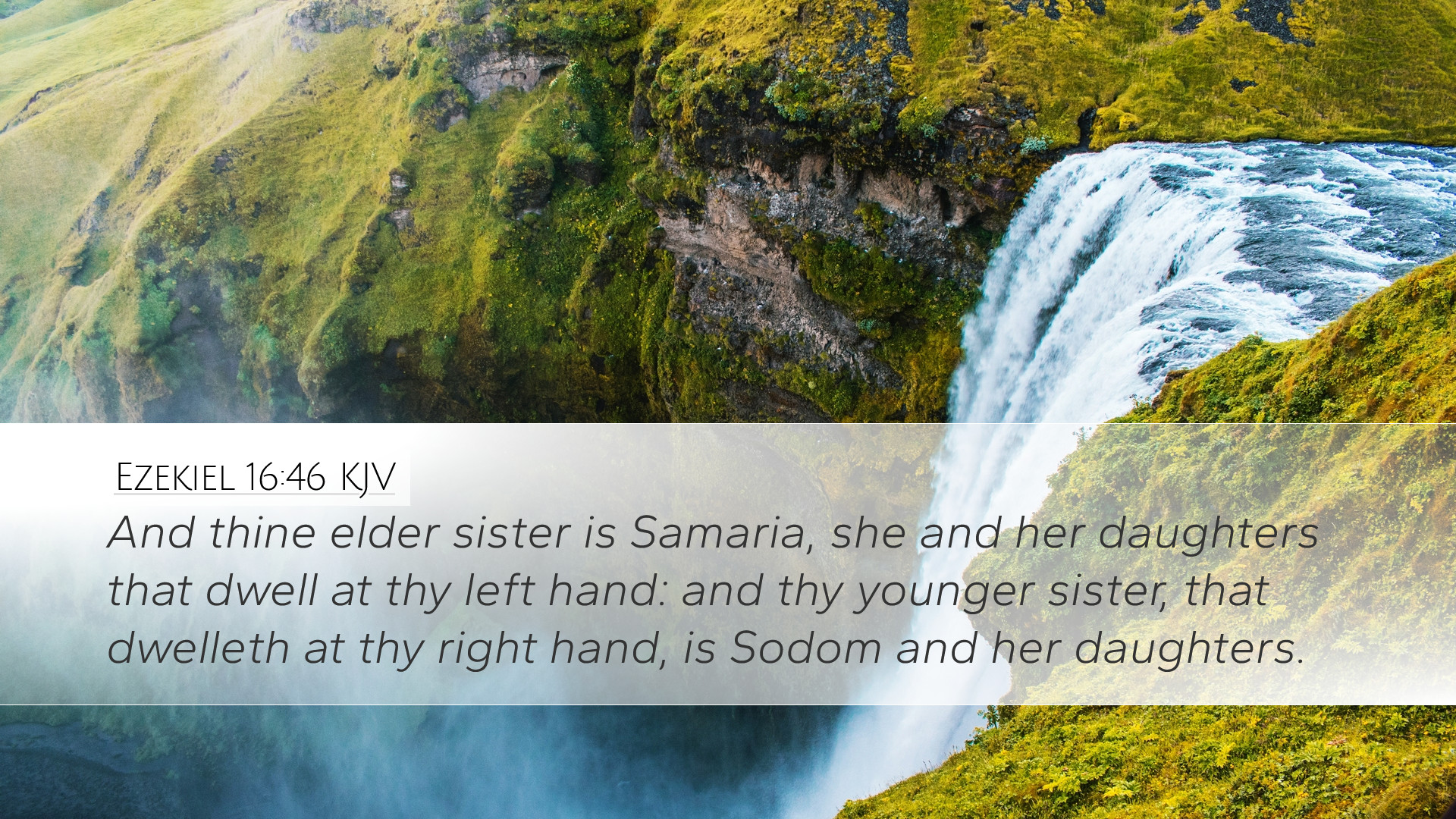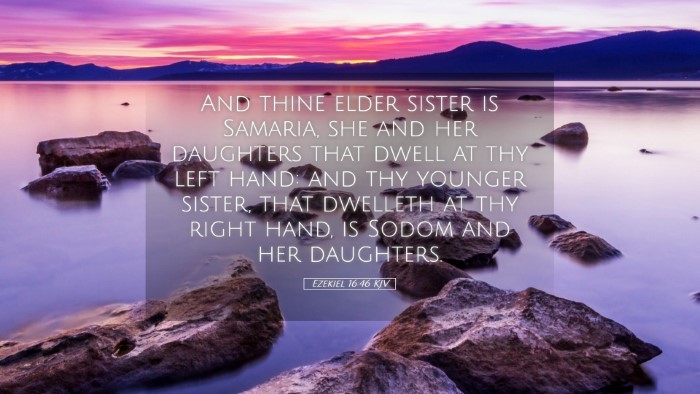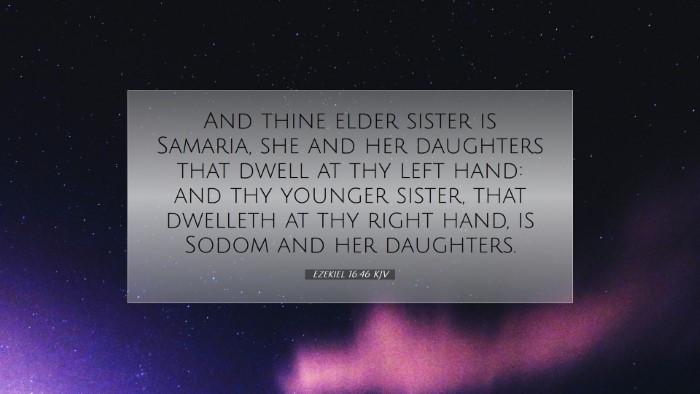Ezekiel 16:46 Commentary
Verse Overview: Ezekiel 16:46 states, "And thine elder sister is Samaria, she and her daughters that dwell at thy left hand: and thy younger sister, that dwelleth at thy right hand, is Sodom and her daughters." This verse arises within a prophetic metaphor where God uses the imagery of sister cities to illustrate Israel's spiritual condition in comparison to other nations.
Historical Context
Ezekiel's Prophetic Message: Ezekiel, a prophet during the Babylonian exile, aimed to communicate God’s judgment and the necessity for repentance. His audience experienced the consequences of Israel’s rebellion against God, making this verse particularly poignant in illustrating Israel's sinfulness in a comparative framework.
Commentary Insights
1. Comparison with Samaria
Matthew Henry's Perspective: Henry asserts that Samaria, the capital of Israel, represents moral decay and apostasy. Although Samaria was betrothed to the same God, it fell into idolatry and sin, thus serving as a potent analogy for Jerusalem's behavior. The reference to "daughters" signifies the surrounding cities that shared in Samaria's sins.
Adam Clarke's Interpretation: Clarke elaborates that while Samaria was indeed guilty of sin, it was not as depraved as Jerusalem. The use of "left hand” symbolizes a position of lesser stature or importance. This indicates that Jerusalem’s sins superseded even those of Samaria, illustrating a deeper layer of betrayal against God.
2. Connection to Sodom
Albert Barnes' Analysis: Barnes emphasizes Sodom as the epitome of wickedness. He points out that the mention of Sodom evokes profound imagery of moral corruption and social injustice. By placing Sodom as Jerusalem's "younger sister," God communicates the severity of Jerusalem’s sins; he suggests that she has sunk even below Sodom’s level of immorality.
Matthew Henry's Observation: Henry highlights the irony that the name Sodom has become synonymous with sin. The juxtaposition serves to deliberate the warning that if God judged Sodom and Samaria, judgment is imminent for Jerusalem. The wording signifies that Jerusalem not only endorses idolatry but has also outrun Sodom in depravity.
Theological Implications
The theological significance of this verse cannot be overstated. It lays the groundwork for understanding how sin impacts communities and nations alike. The comparison reinforces the idea that spiritual decay does not always coincide with overt acts of immorality; rather, it often involves a gradual distancing from God, leading to a state in which a nation can see itself as righteous while completely diverging from God's statutes.
Lessons for Today's Believers
-
Self-Examination: Believers today are urged to reflect on their spiritual conditions by comparing themselves not to others, but to the standard set forth in the Scriptures.
-
Community Vigilance: Churches and communities must remain vigilant against the gradual acceptance of sin. Just as Jerusalem’s inflections of immorality impacted its entire society, so can individual compromises influence collective faith.
-
Hope in Repentance: Despite the stark warnings of this verse, there remains an overarching promise of restoration through sincere repentance. Sodom’s judgment, though severe, also serves as a reminder of God’s justice and mercy—an opportunity for turning from sin towards reconciliation with God.
Conclusion
Ezekiel 16:46 stands as a profound declaration of God’s standard for His people. Through the comparative metaphor of sisters, the verse reflects on Israel's unfaithfulness in a prophetic and dire context. Insights from esteemed commentators serve to deepen our understanding and prompt contemporary believers to remain steadfast in their walk with God.


